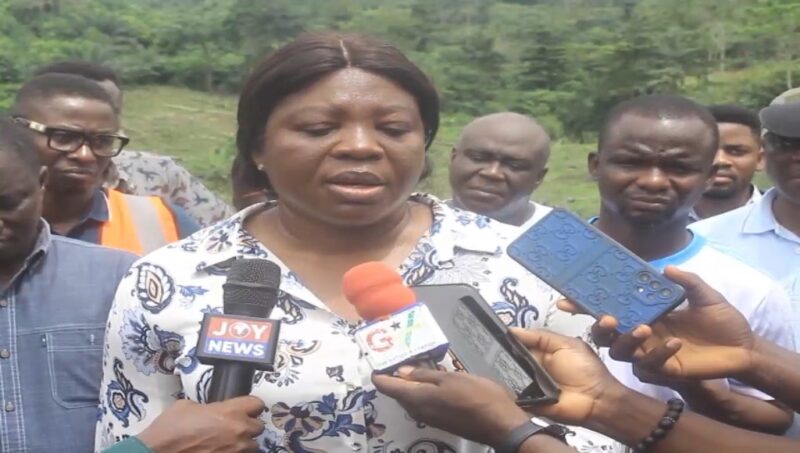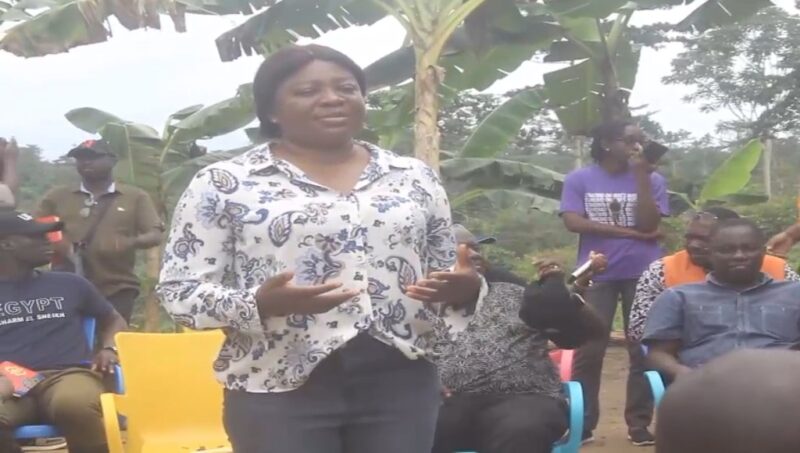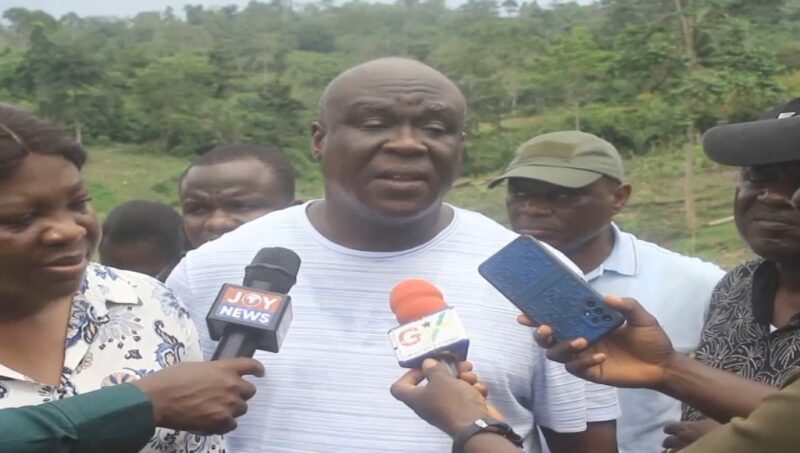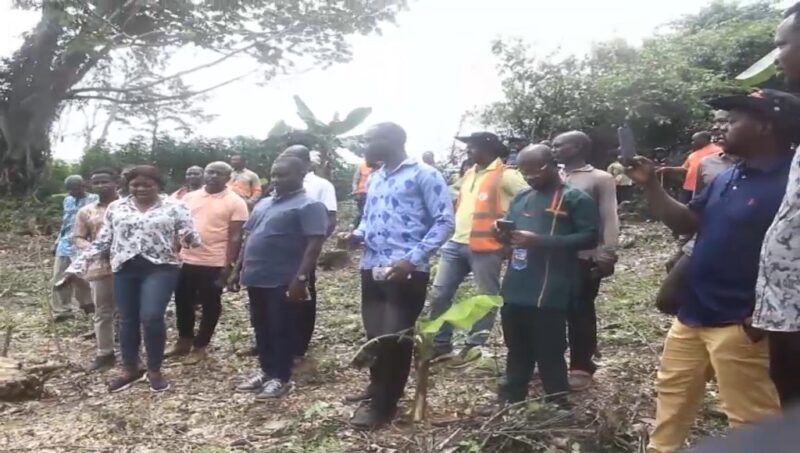The government’s major initiative to restore productivity on moribund farms across the country, with a special focus on cocoa farms, is yielding positive impacts.
That’s according to the Minister for Environment, Science, and Technology, Ophelia Mensah Hayford.
Speaking during a recent assessment of the project’s progress, Ophelia Hayford emphasised government’s commitment to providing farmers with seedlings and funding to support the replanting process and enhance their capacity to sustain their farms.
“The government is helping our farmers to replant, and it’s not just about replanting but also about building their capacities and funding the activities necessary to rejuvenate these farms,” Hayford stated.

“We are here to assess the impact that this project is having on the people, the community, and Ghana as a whole. Globally, we are battling climate issues, and I believe initiatives like this will help us sustain the environment and mitigate these challenges.”
Ophelia Hayford noted that the response from farmers has been overwhelmingly positive, with many expressing their excitement and urging the government to expand the program to include more beneficiaries.
“The farmers are calling on the government to extend its frontiers and assist more people—those who are benefiting now and those who are yet to come,” she added.

One farmer raised the potential for the project to address illegal mining or galamsey, noting that restoring moribund farms could provide a viable and sustainable alternative to the destructive practice.
“The farmers are telling me that if the government sustains this project, it could be a powerful means to curb galamsey, as they have now come to understand that these moribund farms can be rejuvenated into new farms that they can rely on for years to come,” said the minister.

Kingsley Amoako, the focal person for agricultural activities within the project, highlighted the broader impact since its inception.
“Since the project began, we have supported over 58,000 farmers across 26 districts with funds, inputs, and other resources,” Amoako said.
“We’re focusing on general agricultural crops such as cocoa, oil palm, maize, cowpea, rice, and plantain. The approach is ‘bottom-up’; the farmers decide which crops they want to plant, and we support them.”

The overarching goal, according to Mr. Amoako, is to restore the agricultural landscape and make it productive once again.
“We’re promoting technologies that will enhance productivity on farmers’ fields. Our efforts cover 25,000 hectares of agricultural land, but when we consider forest lands—including areas like Mole National Park and other reserves—the landscape restoration totals over one million hectares,” he explained.
The restoration project is part of the government's efforts to address key challenges in the agricultural sector, improve productivity, and provide sustainable livelihoods for farmers, ultimately supporting the nation's economy and environmental conservation.
Latest Stories
-
Pakistan to nominate Trump for Nobel Peace Prize
58 minutes -
Suicide bombing at Damascus church kills 22, Syrian authorities say
1 hour -
Bellingham scores as 10-man Real Madrid beat Pachuca
1 hour -
Three fans die in Algeria football stadium fall
2 hours -
South African engineers freed after two years in Equatorial Guinea jail
2 hours -
FedEx founder and former boss Fred Smith dies aged 80
2 hours -
Bride shot dead in attack on French wedding party
2 hours -
Legon Cities handed transfer ban over unpaid GHC 29,000 compensation to Francis Addo
2 hours -
Alonso says FIFA investigating racial abuse against Rudiger
3 hours -
Rashford would like to play at Barcelona with Yamal
3 hours -
Garnacho posts picture wearing Aston Villa shirt
3 hours -
Premier League contacts Chelsea over Boehly ticket website
3 hours -
Liverpool agree £40m deal to sign Kerkez from Bournemouth
3 hours -
Everton close on deal for Fulham right-back Tete
4 hours -
Africa World Airlines to reduce air fares by end of June 2025
5 hours

